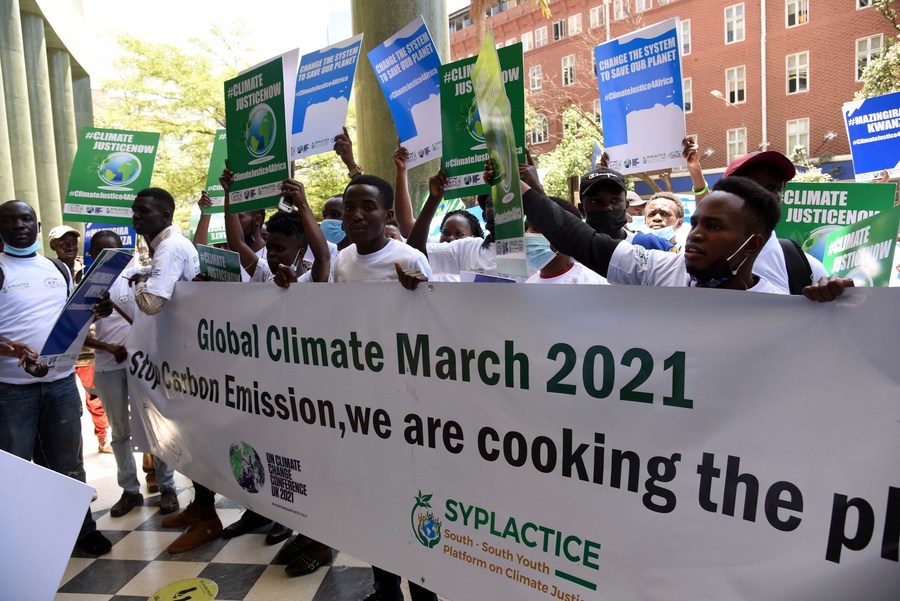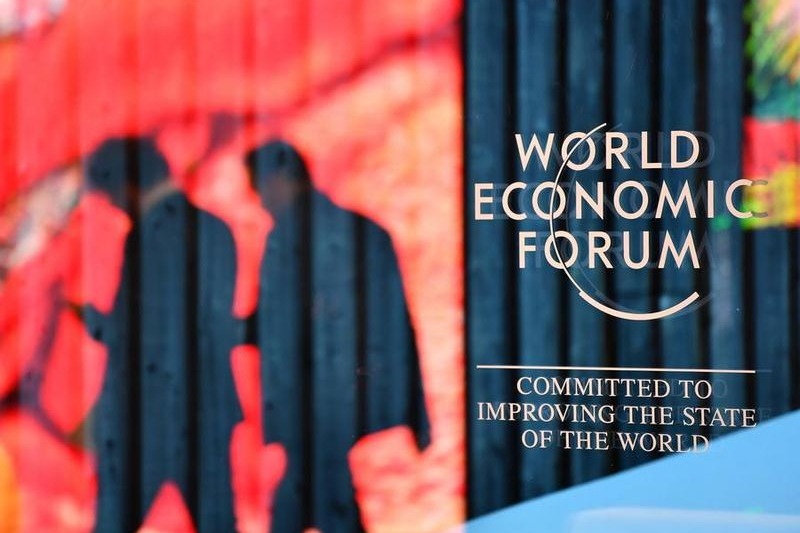Can private finance be trusted to save planet?
By Harvey Morris | China Daily Global | Updated: 2021-11-08 09:20

Negotiators who have gathered at the 26th United Nations Climate Change Conference of the Parties, or COP 26, to find ways to ensure that the world meets its climate targets have been invited to put their faith in banks and global investors to save the planet.
In an initiative that has been greeted with skepticism from climate campaigners, a coalition of banks, insurance companies and investment firms committed $100 trillion of private capital to help the world meet net-zero carbon emissions targets by 2050.
The idea is that these big spenders-they include some of the biggest international banks-will direct their clients' money toward planet-saving investments and shun the fossil fuels that are contributing to global warming.
So far 450 financial institutions, spread across 45 countries, have signed up to the Glasgow Financial Alliance for Net Zero, a coalition convened by the United Nations in April under the leadership of Mark Carney, the UN's special envoy on climate action and finance.
Carney, the Canadian former head of the United Kingdom's central bank, said, "We now have the essential plumbing in place to move climate change from the fringes to the forefront of finance so that every financial decision takes climate change into account."
The theory behind the idea is that governments alone do not have the resources to fund the energy transition and that private money is vital to ensuring its success.
However, the Glasgow Financial Alliance for Net Zero has been the target of criticism from climate campaigners because it allows the loophole of continuing to finance fossil fuel extraction during the transition.
Carney believes big investors will have an interest in funding a clean energy transformation because that is where future profits lie. He said there was no reason investors backing low-carbon projects should have to make do with lower returns.
Despite this lure of future profits, big banks were reported ahead of COP 26 to be resisting any commitment to end financing of all new oil, gas and coal exploration projects this year.
Putting big investors in charge of saving the planet might seem tantamount to putting a fox in charge of the henhouse.
Anyone who lived through the 2008 financial crisis can recall that it was prompted by the reckless mortgage investments of big banks looking for easy profits. It was left to governments to use taxpayer money to bring the world financial system back from the brink.
Left to its own devices, investment money inevitably seeks out the most profitable projects, regardless of the implications for wider society. Big tobacco and big oil are among the sectors that have sought to maximize their profits by resisting pressure to limit the damage they cause.
Developed capitalist societies have also tended to prioritize the concept of shareholder value, in which returns on investment are seen as more important than the goods and services any given company produces or the way it treats its employees and customers.
That raises the question of whether the world can rely on the goodwill of asset managers and big corporations to do the right thing when it comes to the climate issue, or whether legislation will be required instead.
Carney acknowledged ahead of COP 26 that a privately funded green transition plan would also require governments to implement clear and credible net-zero policies.
"This includes carbon pricing, bans on internal combustion vehicles, national targets to phase out fossil fuel subsidies, and mandatory climate-related financial disclosures," he wrote in an opinion piece in the Financial Times.
He invited investors to assess who was part of the proposed$100 trillion green transition revolution and to ask whether it includes their bank, insurer, mutual fund manager or pension fund. His remarks were an invitation to investors themselves to keep the banks and asset managers to their commitments.
Investors and the corporations they finance have had to burnish their green credentials in recent years, reflecting pressure from ethical investors who demand societal benefits as well as a return on their money.
Business leaders as well as world leaders have descended on Glasgow for COP 26 in part to convince customers and investors that they are doing their bit for the planet.
Some climate campaigners have dismissed such tactics as "green-washing", a phenomenon linked more to image building than to genuine climate action. Activists challenge the credibility of banks that continue to finance fossil fuels.
While the jury is still out on whether COP 26 will be judged as a success, Swedish activist Greta Thunberg and her supporters have already declared it a failure. Perhaps with the banks in mind, she declared: "It should be obvious that we cannot solve the crisis with the same methods that got us into it in the first place."
The author is a senior media consultant for China Daily UK. The views do not necessarily reflect those of China Daily.
























